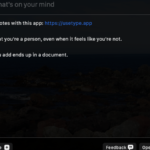The Concerns Surrounding Honey: A Closer Look at the Influencer Scam Allegations
Honey, a browser extension owned by PayPal, boasts a whopping 19 million users on Chrome alone. However, recent allegations raise troubling questions about its practices. Users are reportedly being misled about the availability of the best online prices while also being blocked from utilizing creator affiliate links, which impacts the revenue that content creators earn. The issue gained traction through a revealing video by MegaLag, who has titled it “the largest influencer scam ever,” highlighting an investigation that has reportedly been in motion for several years. MegaLag claims to have sifted through a wealth of documents, emails, and promotional materials, as well as interviewing those affected by Honey’s alleged tactics.
Understanding “the Honey Trap” Influencer Fraud
The Honey extension is designed to automatically identify and apply relevant discount codes when shopping online, promising users instant savings without the hassle of searching for coupons. Marketed by influencers as akin to “free money,” the extension’s claims have come under scrutiny. In a series of tests across various websites, MegaLag was able to uncover valid codes that Honey could not find or discovered better deals than those proposed by the extension itself. Alarmingly, it appears that Honey does not include larger discounts in its repository, which raises suspicions about their agreements with retailers.
Allegations suggest that Honey leverages partnerships with retailers to maintain control over the coupon codes accessible to consumers. Evidence from Honey’s FAQs and promotional podcasts indicates that users may face restrictions on available discount codes when they have the Honey extension installed.
These limitations on coupon codes run counter to Honey’s advertised promise that it “searches for the best coupons on the internet,” as stated on its homepage. Honey claims, “If we find functional codes, we’ll automatically apply the best one to your cart.” While it might locate some codes, it’s clear that they’re not always the most advantageous options available.
Additionally, there are indications that Honey affects revenue-sharing arrangements. The extension has been endorsed by a plethora of well-known influencers, including figures like MrBeast and Marques Brownlee. MegaLag asserts that when users click on product links from these influencers’ content, Honey allegedly removes affiliate link cookies, meaning that these creators miss out on their rightful commission. In many instances, this occurs even when no discounts are applied, allowing Honey to siphon off the referral rewards for themselves. For example, Honey reportedly intercepted a $35 commission from a NordVPN subscription and returned only $0.89 as a cashback reward to the customer, leaving the influencer empty-handed.
In a communication with MegaLag, Honey acknowledged this practice, stating that the extension is programmed to lead customers to the most favorable deals rather than driving traffic to influencers. PayPal’s Josh Criscoe remarked that the extension adheres to industry standards, including last-click attribution. However, PayPal has yet to respond to the allegations regarding restricted access to coupon codes.
MegaLag promises further insights in forthcoming videos, but the damage to Honey’s credibility has already begun to surface. With these revelations, consumers may find it more beneficial to search for discount codes independently.












